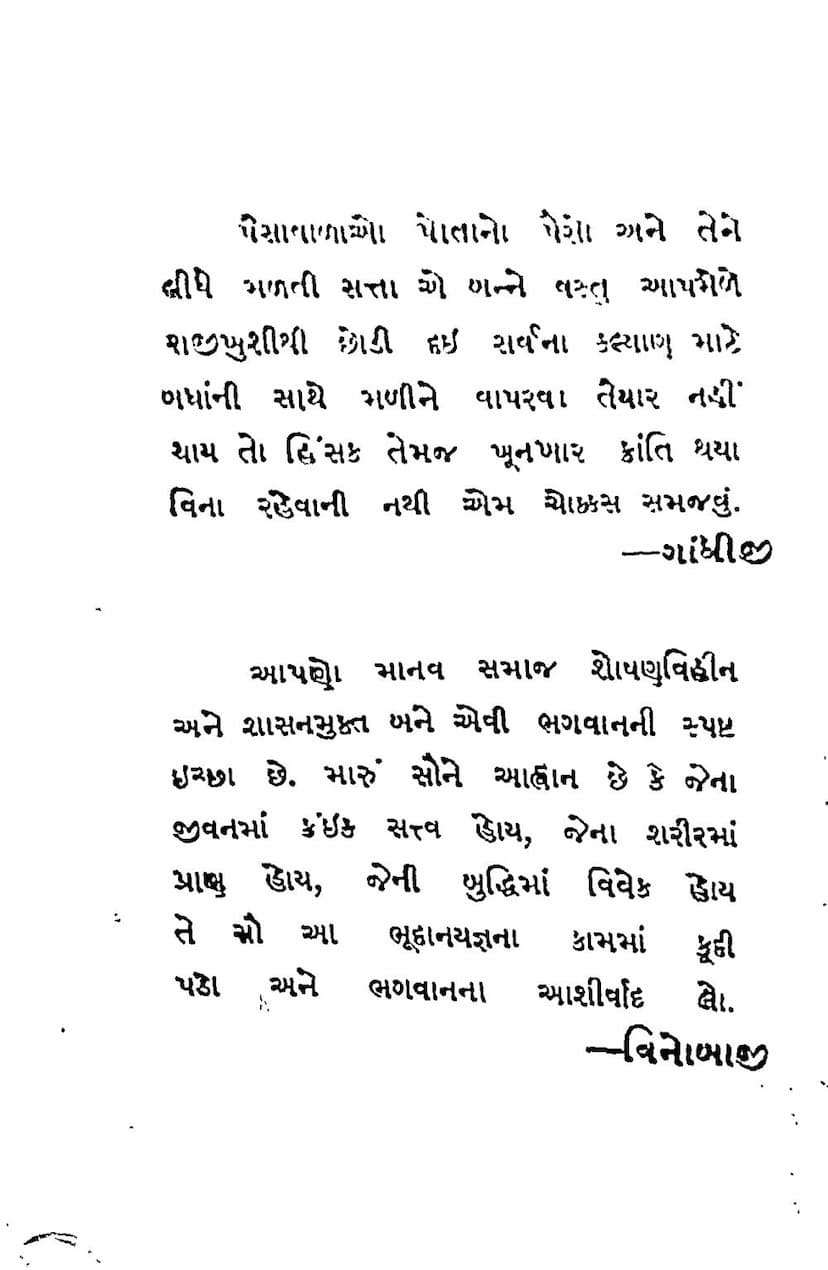Mahaveer Vani
Added to library: September 2, 2025

Summary
Mahaveer Vani, authored by Bechardas Doshi and published by Sastu Sahityavardhak Karyalay Mumbai, is a compilation of teachings and hymns attributed to Lord Mahavir, the 24th Tirthankara of Jainism. The book aims to present the essence of Mahavir's teachings in a accessible manner, drawing from ancient Jain scriptures.
The text begins with a preface acknowledging the inspiration drawn from Gandhian philosophy and Vinoba Bhave's spiritual endeavors. It then outlines a detailed table of contents, covering various sutras (teachings) attributed to Mahavir, each accompanied by commentary. These sutras cover a wide range of spiritual and ethical principles, including:
- Ahimsa (Non-violence): Emphasizing its paramount importance in Jain philosophy.
- Satya (Truth): The necessity of speaking truth.
- Brahmacharya (Celibacy/Chastity): The importance of self-control.
- Aparigraha (Non-possession): Detachment from material possessions.
- Aparicharya (Non-attachment): Renunciation of worldly desires.
- Samayika (Equanimity): Maintaining a balanced state of mind.
- Vinaya (Humility): The virtue of humility.
- Pramada-sthana (Vices): Identifying and overcoming pitfalls in spiritual progress.
- Kaama (Lust): Understanding and conquering desire.
- Asharana (Helplessness): The impermanence of worldly comforts.
- Pandita (Wisdom): The path to true knowledge.
- Atma (Self): The nature of the soul.
- Lokatattva (Cosmic Principles): Understanding the universe.
- Pujya (Worthy of Worship): Qualities of the revered.
- Brahmana (The Pure Soul): The state of spiritual purity.
- Bhikshu (Ascetic): The life and duties of monks.
- Mokshamarga (Path to Liberation): The ultimate goal of spiritual pursuit.
- Jati-mada Nivaranam (Eradication of Caste Pride): The rejection of caste distinctions.
- Kshama (Forgiveness): The virtue of forgiveness.
The book also includes appendices providing Sanskrit translations of key verses, lyrical compositions, an alphabetical index of terms, and explanations of grammatical meters and figures of speech.
The introductory sections highlight the author's personal journey in exploring Jain philosophy, initially finding it difficult to connect with the traditional interpretations. However, through the study of classical Indian literature and encounters with eminent scholars and spiritual leaders like Lokmanya Tilak and Acharya Sukhlalji, the author gained a deeper appreciation for the profound insights of Jainism. The publisher's note and editorial emphasize the relevance of Mahavir's teachings for contemporary society, stressing the importance of compassion, tolerance, and universal brotherhood.
The text delves into the life and teachings of Lord Mahavir, detailing his lineage, birth, early life, and renunciation. It discusses his spiritual quest, the austerities he practiced, and the ultimate attainment of Kevala Jnana (omniscience). The compilation also explores the philosophical underpinnings of Jainism, including the concept of anekantavada (multi-sidedness of reality) and syadvada (conditional predication).
Mahavir's teachings on various ethical principles are elaborated upon, with particular emphasis on ahimsa. The text explains how ahimsa extends not only to refraining from physical violence but also to controlling one's thoughts, speech, and actions to avoid causing harm. It contrasts Mahavir's teachings with prevailing societal norms of his time, including ritualistic sacrifices, caste distinctions, and the subjugation of women, highlighting his revolutionary approach to social and spiritual reform.
The book also addresses the concept of parigraha (possession) and its implications for spiritual progress, outlining different degrees of renunciation for ascetics and householders. The importance of samyama (self-control) and tapa (austerity) is consistently reinforced as essential for spiritual growth.
The concluding sections of the text include detailed commentaries on specific sutras, offering comparative insights by drawing parallels with teachings from other religious traditions, such as Buddhism, Hinduism, and Christianity. This comparative approach underscores the universal themes of spiritual wisdom found across different philosophies. The appendices further enrich the reader's understanding by providing the original Sanskrit verses, their translations, and explanations of Jain terminology and poetic devices.
In essence, "Mahaveer Vani" serves as a comprehensive guide to the core principles of Jainism, presented through the words and life of Lord Mahavir, with the aim of inspiring readers towards a life of righteousness, compassion, and spiritual liberation.